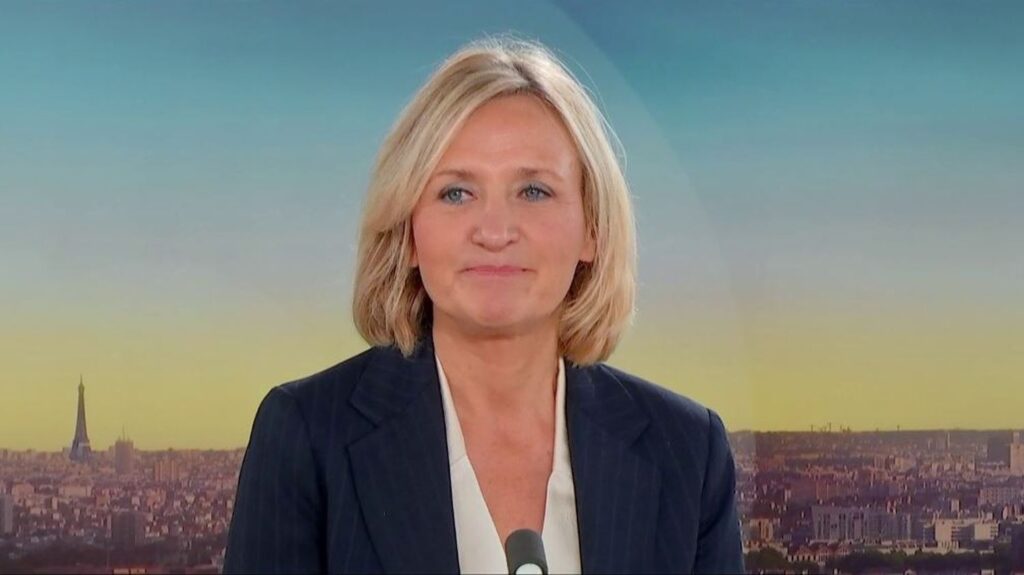/2025/10/15/jnvjnvj-68ef515d3ed3d860480861.jpg)
The 2025 draft budget raises many questions, while room for maneuver remains limited. Stéphanie Villers, economist and economic advisor at PwC France, was the guest of franceinfo’s “10 minutes info” to discuss it with Jean-Baptiste Marteau and Baptiste Morin.
The 2025 draft budget is the subject of debate while the government’s room for maneuver remains limited. Stéphanie Villers, economist and economic advisor at PwC France, was the guest of “10 minutes info” on channel 16 to discuss it alongside Jean-Baptiste Marteau and Baptiste Morin.
This text corresponds to part of the transcription of the report above. Click on the video to watch it in full.
Jean-Baptiste Marteau: The threat of censorship is receding, as we will see shortly with the final result. But for now, let’s focus on the budget in a completely new context, since the 49-3 will not be used. MPs will therefore have to find a consensus. This means that amendments will be voted on or rejected by the oppositions. The relative majority risks ending up with a budget far removed from the initial version presented yesterday by the government. The final result remains completely uncertain.
Stéphanie Villers: The Prime Minister, however, gave a guideline by indicating that the deficit should reach 5% of GDP.
Jean-Baptiste Marteau: This is therefore the only limit and the framework set by the government: a maximum deficit of 5%.
Stéphanie Villers: This shows that the collective effort required will be relatively modest. For what ? Because this year the deficit is 5.4%. Next year it is expected to increase to 5%, a reduction of 0.4 points.
Jean-Baptiste Marteau: So it’s a moderate effort?
Stéphanie Villers: Yes, this represents around 15 to 20 billion euros of effort. In reality, the budget presented targets a deficit of 4.7%, which leaves room for negotiation. The National Assembly will thus truly have the impression of having control over the process.
Jean-Baptiste Marteau: You talk about this “impression” of having the hand. In any case, the effort requested is quite moderate, 15 to 20 billion compared to the initial 44 billion.
Stéphanie Villers: We have to put this into perspective. Compared to other European countries, we will remain the least rigorous student with a deficit of 5% next year. The other countries show deficits of around 3%. Some, like Portugal, even record budget surpluses.
Baptiste Morin: And they collect money from taxes, with tax cuts, and from pensions, with pension increases. This gives an enviable situation compared to France.
Stéphanie Villers: Absolutely. We will not really follow a logic of budgetary rigor.
Jean-Baptiste Marteau: By examining the draft budget presented yesterday, which is first discussed in the Council of State before going through the budgetary bodies and the Financial Affairs Committee of the Assembly, we see that numerous efforts have already been proposed.
Baptiste Morin: Yes, but it is mainly small taxes that can cause irritation. For example, a tax on biofuels could be withdrawn quickly, given the precedent of the yellow vests. There is also a tax on mutual health insurance, which could generate protests. Overall, the budget provides for 30 billion in efforts, divided between 14 billion in tax increases and 17 billion in spending cuts. Tax increases are easy to identify, but the savings are more difficult to visualize, even if 7 billion concerns health. This sector could also react strongly.
Jean-Baptiste Marteau: We therefore see that there is room for negotiation between the proposed efforts and the objective of 5% deficit, or 15 to 20 billion. For the moment, spending cuts remain difficult to identify in this draft budget.
Stéphanie Villers: This is a recurring problem in France. Controlling tax increases is relatively simple, but reducing public spending requires structural reforms. The pension reform clearly shows that public opinion is not ready to accept reductions in current aid, whether intended for some or for the entire population.
Jean-Baptiste Marteau: There is no majority in Parliament to carry out these structural reforms. Are we just going to postpone the problem?
Stéphanie Villers: We must not forget that we committed to Brussels, like other European countries, to reduce the deficit to 3% by 2029. In reality, what we are doing today is postponing the necessary effort. Until 2027, nothing significant will happen.
Jean-Baptiste Marteau: In short, the “hot potato” will be passed on to the next president.
Stéphanie Villers: Exactly. Over two years, it will take around 80 billion dollars to be able to respect, if we wish, our long-term commitments.


